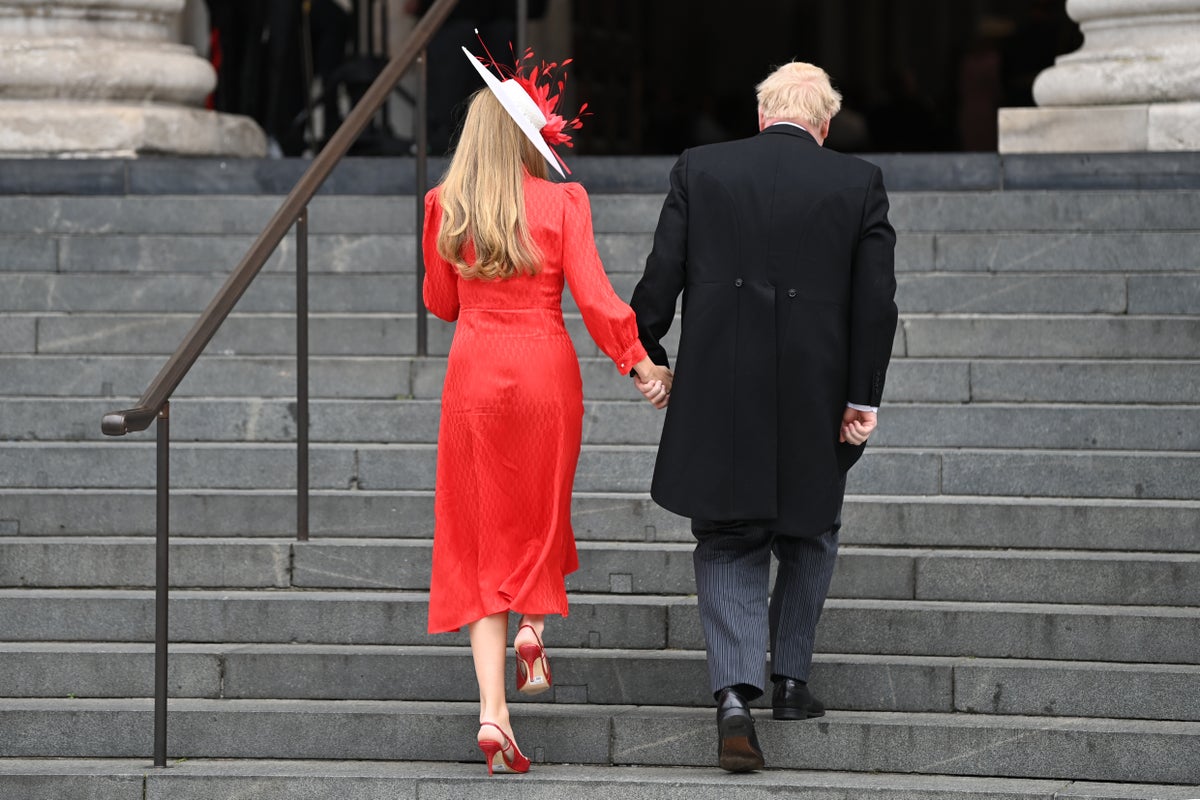
Boris Johnson faces the task of persuading Conservative MPs he can still lead his party into the next general election, despite being booed by the crowd outside the Queen’s platinum jubilee service.
In a new humiliation for the prime minister, desperately trying to stave off a no-confidence vote, he was met with a loud chorus of boos, jeers and whistles as he walked up the steps of St Paul’s Cathedral with his wife Carrie on Friday.
BBC presenter Jane Hill noted that there was a “substantial amount” of booing as Mr Johnson entered the cathedral. The PM was also heckled as he left the service – with one person heard shouting “f*** off Boris”.
A Labour source told The Independent: “The boos for the prime minister will have been a rude awakening to those Tory MPs who have been in denial about the public’s anger at the industrial-scale law-breaking they’ve seen in No 10.”
It comes as Downing Street is said to be preparing for a “charm offensive” of wavering rebel MPs in the hope they can be won over and a leadership vote avoided.
Around 30 backbenchers have publicly called for the prime minister to resign, and committed rebels believe they are close to reaching the threshold of 54 no-confidence letters needed for a leadership ballot.
No 10 officials have drawn up a list of 64 Tory MPs they believe can still be won over, including senior figures such as Theresa May, Tom Tugendhat and Julian Smith, according to The Telegraph.
Meanwhile, rebel Tories MPs shared fears about the timing of a push to remove Mr Johnson, with some expressing doubts that next week is the right moment for a vote of no-confidence to be triggered.
One Tory MP keen to see Mr Johnson replaced has urged colleagues to withdraw their no-confidence letters to prevent a vote happening “by accident” at the start of next week, according to The Guardian.
Rebels have previously told The Independent that they fear a confidence vote could be triggered too soon “accidentally” – allowing Mr Johnson a good chance of staying in power for another 12 months.
Tory rules mean that a majority of the party’s MPs – 180 – would have to vote against Mr Johnson in order to spark a contest to find his replacement. If the PM survives, he is protected from another vote for a year.
Anxious anti-Johnson backbenchers are said to fear that potential leadership candidates have not had enough time to mobilise and encourage wavering MPs to look beyond Mr Johnson.
Some believe the period after two by-elections on 23 June would present the best chance of defeating the PM in a confidence vote.
Andrew Bridgen – the Tory MP who recently resubmitted his letter after withdrawing it at the outbreak of the Ukraine war – reportedly predicted in a Tory WhatsApp group that No 10 would be told on Monday that 54 letters had already gone in to 1992 Committee chair Sir Graham Brady.
Tory MP Mark Francois, who has not called for Mr Johnson to go, suggested the PM still had work to do to convince many of his wavering backbenchers that things will change after Partygate.
“We will come back on Monday and colleagues will ask, ‘Who is going to take responsibility for this?’” he told Times Radio on Friday. “Having spoken to colleagues in the past few days, the mood is, they want to know, ‘Who is going to carry the can?’”
It comes as the head of the Grassroots Conservatives activist group called on Mr Johnson to resign over the Partygate scandal, saying the PM would “put off voters” at the next general election.
Ed Costelloe told The Telegraph that Mr Johnson had not been “wholly honest” about the law-breaking gatherings in Downing Street. “If he had any sense he would resign before he was pushed.”







